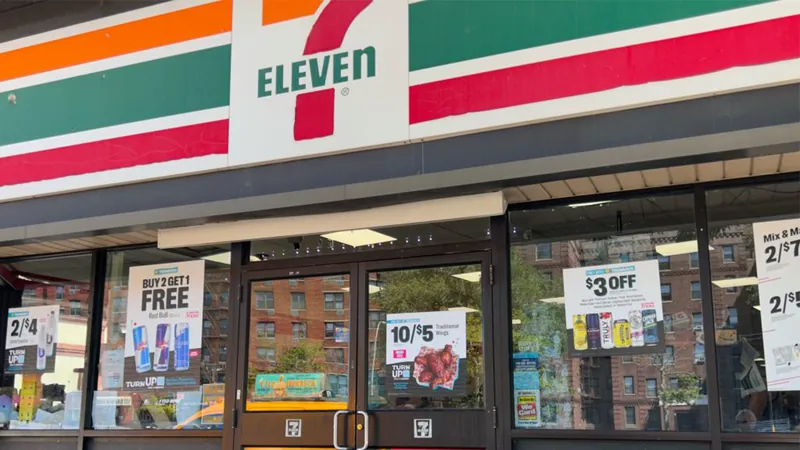
The Job Market Looks Strong, But Job Seekers Are Feeling Stuck - Here's Why!
2024-10-11
Author: Ting
Recent reports highlight a robust job market, with impressive job growth continuing to signal a booming economy. The unemployment rate saw an unexpected decline in September, accompanied by significant job creation across numerous industries. This all paints a rosy picture, but not everyone shares in the good fortune. For many job seekers, the reality is starkly different as they grapple with a challenging employment landscape.
Amid fears of labor hoarding, workers are increasingly reluctant to leave their current positions, and those searching for new opportunities are finding it tougher than ever. Many are experiencing a kind of "golden handcuff" scenario: while they might be unhappy in their jobs, the dwindling prospects for advancement or better roles keep them anchored in place. For these individuals, "winning" in the labor market means simply holding on to their current employment.
Despite the positive statistics, the picture isn't entirely rosy for the unemployed. In September, approximately 1.6 million individuals were classified as long-term unemployed, signaling a significant challenge in securing new jobs. Liz Wilke, a principal economist at Gusto, pointed out that businesses are cautious, waiting to see how future economic shifts, such as potential interest rate cuts, will affect their hiring strategies. This hesitancy leaves job seekers in a precarious position, with fewer opportunities at their disposal.
The tough reality is evident: the quits rate has slowed to a four-year low of 1.9%, indicating a lack of confidence among workers looking to make a change. Job openings, which showed a slight uptick in August, have been in decline since 2022, leaving many feeling hopeless in their job search. One job seeker revealed it took over 1,000 applications and nearly four months before landing a desirable position, while another stated he was ready to give up after submitting nearly 2,200 applications.
Compounding these difficulties, recent graduates entering the workforce face additional hurdles. Hiring has cooled considerably as companies remain cautious due to ongoing economic uncertainty, making it challenging for fresh talent to find jobs.
Claudia Sahm, a former Fed economist, emphasized that we are seeing a phenomenon known as "labor hoarding." Companies, having learned from past labor shortages, are hesitant to let go of employees, but this wariness also inhibits their willingness to hire new talent. Although the labor market has cooled, it has largely avoided mass layoffs, mitigating the prospect of a full-blown recession.
Labor Secretary Julie Su noted that contrary to predictions of a steep economic downturn made in 2021, the job market has remained strong and steady. Job seekers might need to adjust their expectations and bide their time, as experts like Wilke suggest that if interest rate cuts are executed effectively, we could see a resurgence in hiring and labor market dynamism by 2025.
The striking contrast between job market statistics and the experiences of job seekers exemplifies a complex and evolving landscape. While employers are keen to retain their talent, the shrinking pool of opportunities leaves many individuals feeling frustrated and trapped in their current roles. For those on the hunt for new job prospects, patience may indeed be a virtue as they navigate an uncertain employment environment.



 Brasil (PT)
Brasil (PT)
 Canada (EN)
Canada (EN)
 Chile (ES)
Chile (ES)
 España (ES)
España (ES)
 France (FR)
France (FR)
 Hong Kong (EN)
Hong Kong (EN)
 Italia (IT)
Italia (IT)
 日本 (JA)
日本 (JA)
 Magyarország (HU)
Magyarország (HU)
 Norge (NO)
Norge (NO)
 Polska (PL)
Polska (PL)
 Schweiz (DE)
Schweiz (DE)
 Singapore (EN)
Singapore (EN)
 Sverige (SV)
Sverige (SV)
 Suomi (FI)
Suomi (FI)
 Türkiye (TR)
Türkiye (TR)